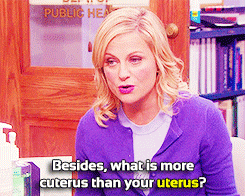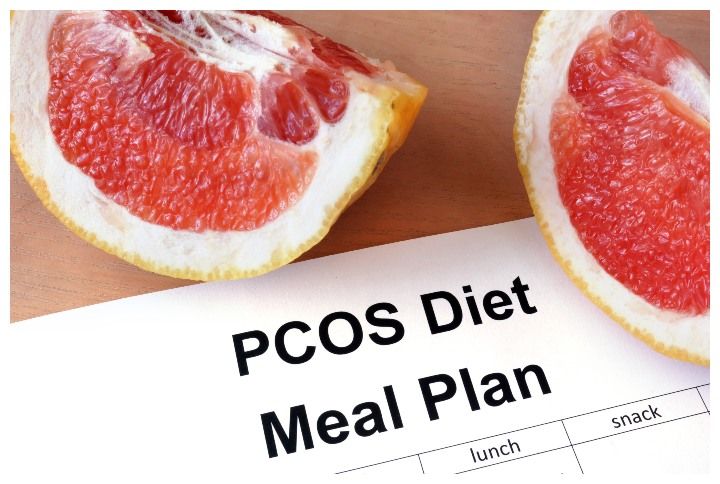
We all have a love-hate relationship with our beloved uteruses. On one hand, we curse it during that time of the month, but other times, we love it for making us the strong women that we are. Nevertheless, several women face a multitude of issues surrounding their uteruses that they are not even aware of! A diagnosis that has lately surfaced among many women in India is PCOS—Polycystic Ovary Syndrome. One in every five women in our country suffers from this disorder. It is extremely important to make sure you take care of yourself when diagnosed with PCOS. Diet is a very important part of it, and therefore, I got in touch with the chief nutritionist and clinical dietician of Nutribond, Ms. Huda Shaikh. Upon speaking with her, she gave us a lowdown of how to go about navigating your diet plan if you have PCOS. Let’s get started, shall we?
1. What is PCOS?
Polycystic Ovaries Syndrome is a hormonal imbalance that occurs in women during the childbearing age of 20-40 years. To put it down in simple words, it is an increase in the ratio of male hormones called androgens, out of which the testosterone levels are at peak. Poly means ‘many’ and cysts mean ‘fluid-filled sacs’. These cysts are nothing but follicles with an immature egg which doesn’t mature as the process of ovulation does not take place.
PCOS is characterised by:
- Cysts in the ovaries
- Irregular periods
- Increased levels of male hormones, especially, testosterone
2. What causes PCOS?
While doctors haven’t deciphered the exact reason behind PCOS, excess androgens production could be linked to the following:
- Being overweight/obese
- Genetic tendency
- Stress
- Insulin resistance
- Hormonal imbalance
- Accumulation of toxins in the body
- Wrong dietary choices
3. What are some symptoms?
While most women notice the symptoms are generally in relation to their period, some may observe excessive weight gain or a problem in getting pregnant. Here are some common symptoms of PCOS:
- Irregular periods
- Oily skin and acne
- Hair thinning and hair loss
- Hirsutism (Excessive hair growth on various parts of the body – usuallychest/back and belly and on the face)
- High blood pressure
- Increased stress levels
- Sleep apnea
- Weight gain
- Insulin resistance
- Pelvic pain
- Fatigue
- Depression and anxiety
- Decreased Libido
- Increased testosterone
The symptoms may, however, vary from person to person, and not every woman suffering from PCOS shall go through the above mentioned symptoms.
4. How does this affect you?
With higher than normal levels of androgens in the body, here are some ways PCOS could affect you:
Infertility
: Since women with PCOS do not ovulate frequently, conceiving a child could become difficult at times.
Metabolic syndrome
: Most of the women with PCOS suffer from weight gain. PCOS, coupled with obesity, can put women at the risk of high blood pressure, high blood sugar levels and high levels of bad cholesterol (LDL) and low levels of good cholesterol (HDL). All of these symptoms collectively can give rise to metabolic syndrome.
Sleep apnea
: Sleep apnea is common in women who are overweight and suffering from PCOS. It is a condition which causes paused breathing while sleeping and it could interrupt sleep drastically.
Depression
: Irregular menstrual cycles, hair growth, acne, loss of hair can have a negative impact on women thereby influencing their emotions. Hence women with PCOS might suffer from depression or anxiety issues.
Endometrial cancer
: Women with PCOS do not ovulate regularly, thus the endometrial lining does not shed every month. Therefore, there are chances that it might thicken putting one at the risk of endometrial cancer.
5. What is the ideal diet for someone suffering from PCOS?
Try and maintain your weight and, most importantly, try to lose weight in a sustainable manner if you have gained weight due to PCOS. Here are some foods that you must include in your diet, as well as stay away from.
- Include more fiber in the diet (fruits, vegetables, oats, rye, quinoa, barley, millets).
- Reduce the intake of dairy and dairy products. In general, practice it in moderation.
- Opt for lean meat (chicken/fish) rather than red meat or bacon.
- Reduce the intake of caffeine, carbonated beverages, and alcohol.
- Eat enough healthy fats such as almonds, walnuts, chia seeds, flaxseeds, pumpkin seeds, sunflower seeds, fish, avocado, etc.
- Get protein from vegetable sources like almonds, walnuts, chia seeds, flaxseeds, soymilk, almond milk, lentils, beans and so on, rather than latching on to dairy.
- Avoid the consumption of processed, refined and outside food.
I highly recommend to keep stress at bay, by practicing yoga and meditation. Moreover, stay active.
Now, that’s an impressive list, ain’t it? We can’t thank Huda enough for sharing her expertise on this topic and spreading the word on PCOS. If you or anyone you know suffers from PCOS, don’t hesitate to follow Huda’s advice!
Don’t forget to follow @missmalinilifestyle for more cool updates!

